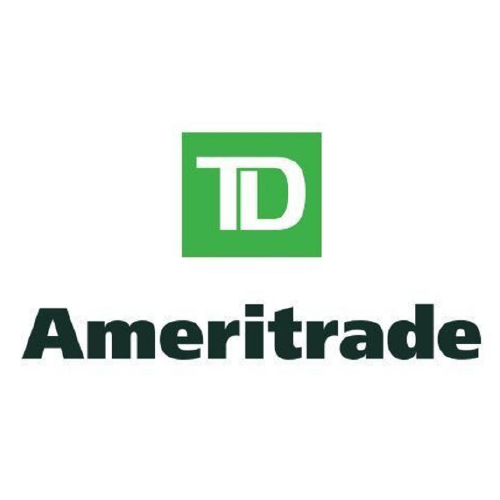Investors manage risk by ensuring that investments are spread across a diverse range of products and markets. By investing in different areas and types of assets, investors hope to both maximise investment and reduce the risk of loss.
Investors expect their brokers to help them build portfolios that meet their investment objectives. Diversification, which is the process of investing in a variety of industries, companies, and investment types, is a necessary component of this process. However, lack of diversification, which results in a portfolio that is overly concentrated in one area, creates undue risk for investors and can result in catastrophic investment losses. Below is an overview of how lack of diversification hurts investors.
How Does Lack Of Diversification Create Risk?
A portfolio that is not properly diversified leaves investors vulnerable to market fluctuations and industry downturns. The market is liable to turn at any moment, and a diversified portfolio provides protection against unpredictability. It is not uncommon for specific companies or entire industries to come crashing down, leaving investors with huge losses. Simply put, investors with assets concentrated in one or two specific areas are taking a big risk. As opposed to diversified investors, such individuals will often suffer enormous financial setbacks when things go bad.
Bouncing back from investment losses can be difficult
It can be extremely difficult to bounce back financially after suffering huge losses due to a poorly diversified portfolio. Watching one’s investments plummet can also take a huge emotional toll on investors and their families. Competent brokers understand that diversified portfolios are the best way to protect investors from catastrophic financial loss. Unfortunately, however, not all brokers understand this, ignoring their clients’ wishes and concentrating funds in risky industries and companies.
Can brokers be held liable for lack of diversification?
Brokers and financial advisors are required to comply with rules and guidelines of the Financial Industry Regulatory Authority (FINRA). And when FINRA rule violations result in financial losses, investors may have legal recourse. Under FINRA Rule 2111, brokers and financial advisors must have a reasonable basis for making investment recommendations, and they must ensure that all proposed investment activity is suitable for each specific client. Usually, an investment strategy that results in an investor taking on too much risk is not suitable. And part of complying with the above rule and meeting FINRA’s suitability requirements involves the creation of a properly diversified portfolio. Therefore, when a financial advisor or broker recommends an investment strategy that results in a poorly diversified portfolio, it is important to seek legal guidance, as the affected investor may be able to hold the responsible individual liable for his or her investment losses.
Investor Representation Attorney
At SIMMS LAW, P.A., one of our primary focuses is the representation of investors. The financial markets can result in great gains and losses, so expert legal representation is a must when attempting to navigate this complex area. At SIMMS LAW, we always take our clients’ concerns seriously and are aware of what is at stake when an investor suffers losses in the financial markets. Therefore, if you require expert legal guidance, please contact us for a consultation.
Financial Trading is not suitable for all investors & involved Risky. If you through with this link and trade we may earn some commission.
What Is a Diversified Fund?
A diversified fund is an investment fund that is broadly invested across multiple market sectors, assets, and/or geographic regions. It holds a breadth of securities, often in multiple asset classes. Its broad market diversification helps to prevent idiosyncratic events in one area from affecting an entire portfolio.
Index funds are prime examples of diversified funds, although diversified funds need not track an index and may be actively managed. Moreover, an equity index fund, for example, is only diversified within the universe of stocks and does not hold other assets like bonds or commodities. A diversified fund can be contrasted with specialized or focused funds, such as sector funds, which focus on stocks in specific sectors such as biotechnology, pharmaceuticals, or utilities
KEY TAKEAWAYS
- Diversified funds refer to pooled investments that build portfolios across several asset classes, regions, and/or industry sectors.
- Diversification is a key investment strategy for reducing systematic risk in a portfolio while maintaining levels of expected return.
- Diversified funds can range in focus from passive indexed funds that replicate broad indices to actively managed funds that invest broadly.
Understanding Diversified Funds
Diversified funds primarily seek to mitigate idiosyncratic or unsystematic risk by investing in a broad array of securities across multiple market sectors or geographic regions.. Diversified funds may also choose to manage stocks across multiple countries. A multi-regional fund also investing in multiple sectors would be one of the market’s most broadly diversified funds. Diversified funds can also invest across multiple asset classes to help spread risks even more. With a multiple asset class portfolio, managers can also seek optimization of returns.
Overall, diversified funds are mindful of both unsystematic and systematic risks. They seek to mitigate these risks through their broad diversification. Since unsystematic risks are often sector-specific they can be alleviated by multi-sector investing. Funds broadly diversified across regions may also be able to manage against some market-wide systematic risks that are inherent to a particular country or region.
Investors choose diversified funds for several reasons. Conservative investors may seek diversified funds because they offer a lower risk of concentrated losses without sacrificing expected return. Diversified funds are thus also often optimized for a balance that gives investors the highest return for their risk.
Diversified Fund Investing
Generally, all funds offer diversification by investing in a broad array of securities. Investment funds in general will help investors diversify away the idiosyncratic risks that can affect one security or a group of securities in a specific sector. When seeking diversified funds, investors may need to closely consider the types of risks they wish to mitigate or exposures they wish to retain.
Index Funds
Broad market index funds can be one type of diversified fund, offering low costs with broad market diversification. The Wilshire 5000 Index Fund (WFIVX) for example, seeks to track the return and holdings of the Wilshire 5000 Index. The Wilshire 5000 Index represents the entire U.S. equity investable market. Therefore, investors have exposure to the full range of U.S. market sectors and capitalizations. It will however be subject to the overall systematic market risk affecting U.S. companies in general.
A globally diversified index fund can offer mitigation of unsystematic risk and some systematic risks associated with markets in individual countries. The Vanguard Total World Stock Index Fund is one example. The Fund seeks to track the holdings and performance of the FTSE Global All Cap Index. It includes developed and emerging market stocks across all market sectors and capitalizations.
A balanced fund is a mutual fund that typically contains a component of stocks and bonds. A mutual fund is a basket of securities in which investors can purchase. Typically, balanced funds stick to a fixed asset allocation of stocks and bonds, such as 70% stocks and 30% bonds, or 60/40, etc.
Actively Managed Funds
Vanguard and JPMorgan offer some of the industry’s top actively managed diversified funds.
Vanguard Diversified Equity Fund: The Vanguard Diversified Equity Fund invests in eight actively managed U.S. stock funds for diversification. Through the underlying funds, the Vanguard Diversified Equity Fund seeks to offer diversification across growth, value, and capitalization. The Fund’s top underlying holding is the Vanguard Growth and Income Fund.
Financial Trading is not suitable for all investors & involved Risky. If you through with this link and trade we may earn some commission.
Myanfx-edu does not provide tax, investment or financial services and advice. The information is being presented without consideration of the investment objectives, risk tolerance, or financial circumstances of any specific investor and might not be suitable for all investors.



















